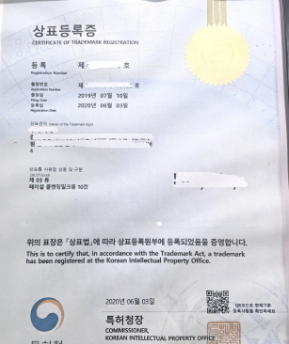South Korean Patent Registration Guide: Help you seize market dominance and avoid risk traps!
In today's booming South Korean e-commerce market, patent protection has become a key weapon for sellers to build competitive barriers. A patent registered in South Korea not only effectively prevents product plagiarism but also serves as a “get-out-of-jail-free card” for addressing complaints from cross-border e-commerce platforms like Coupang.
Why must cross-border sellers pay attention to South Korean patents?
In 2025, South Korea's Coupang platform will continue to intensify its crackdown on intellectual property violations. According to the latest data, the number of account suspensions due to patent infringement increased by 35% year-over-year. The platform enforces a “zero-tolerance” policy toward infringing products. Once found guilty of patent infringement, sellers will face:
Immediate product removal: Infringing products will be suspended from sale, resulting in immeasurable losses.
Account downgrade risk: Repeated infringements will lead to a significant reduction in the store's exposure rate.
Possible permanent store closure: Serious offenders may be placed on the platform's blacklist and barred from re-entering.
What's more concerning is that South Korea's newly revised Patent Act in 2025 has for the first time included “export” as a type of patent implementation. This means that even if your products are not manufactured in South Korea, exporting them to the South Korean market may still result in patent infringement lawsuits, with potential criminal penalties of up to seven years in prison.
South Korea's three major patent types
1. Invention patents
Protected subject matter: New technological solutions for products, methods, or their improvements.
Term of protection: 20 years
Applicable products: Technology-intensive products such as electronic products, smart home devices, and innovative tools.
2. Utility model patents
Protected subject matter: Practical new technological solutions for the shape, structure, or combination thereof of a product.
Term of Protection: 10 years
Applicable Products: Daily tools, kitchenware, functional home products, etc.
3. Design Patents
Protected Subject Matter: Aesthetically pleasing designs of a product's shape, patterns, colors, or their combinations.
Term of Protection: 20 years
Applicable Products: Fashion accessories, home decor, packaging design, and other visually oriented products.
Korean Patent Application Pathways
1. Direct Application: Submit the application directly to the Korean Intellectual Property Office (KIPO).
2. PCT Pathway: Enter the Korean national phase via the PCT pathway.
3. Paris Convention Pathway: Submit the application to KIPO within 12 months of filing the prior application in China via the Paris Convention.
Avoid Pitfalls Guide for Enterprises
1. Insufficient translation accuracy
Risk: Deviations in the scope of claims may result in a narrowed scope of protection or invalidation.
Countermeasure: Engage a senior Korean patent translator with a technical background (Zhuo Xi has senior Korean patent translation partners).
2. Utility model patent “substantive examination” trap
Korean utility models require substantive examination (China only conducts formal examination)
Countermeasure: Conduct thorough prior art searches and drafting in advance to avoid applying Chinese experience directly.
3. Errors in claiming priority
Risk: Exceeding the 12-month priority period or failing to meet document requirements.
Countermeasure: Strictly monitor deadlines and prepare priority proof documents in advance.
4. Lack of infringement monitoring in the Korean market
Risk: Encountering infringement but being unable to enforce rights promptly.
Countermeasure: Commission Zhuo Xi to conduct regular infringement monitoring for you.
 South Korean Patent Registrati
South Korean Patent Registrati
 The First Step to Tapping into
The First Step to Tapping into
 Spanish VAT compliance upgrade
Spanish VAT compliance upgrade
 EU Battery Law Coming into Eff
EU Battery Law Coming into Eff
